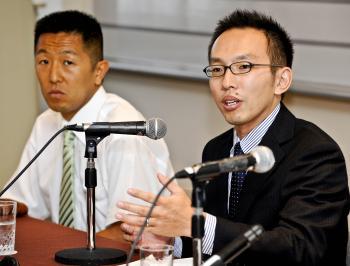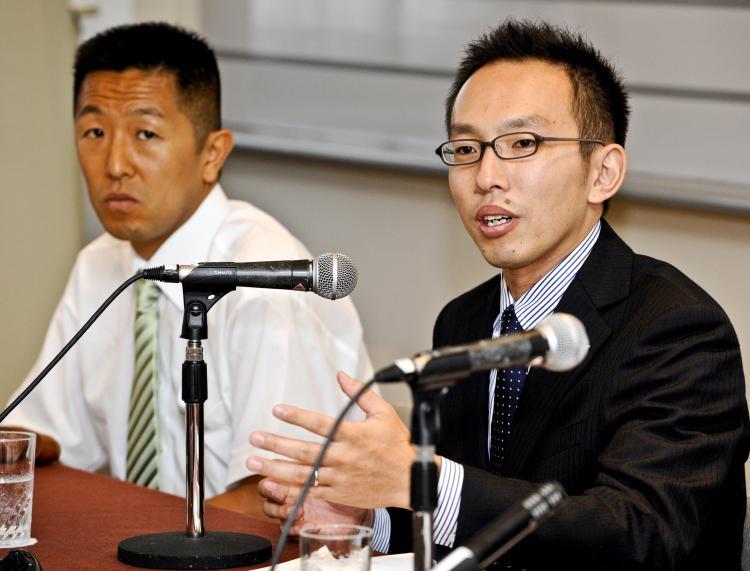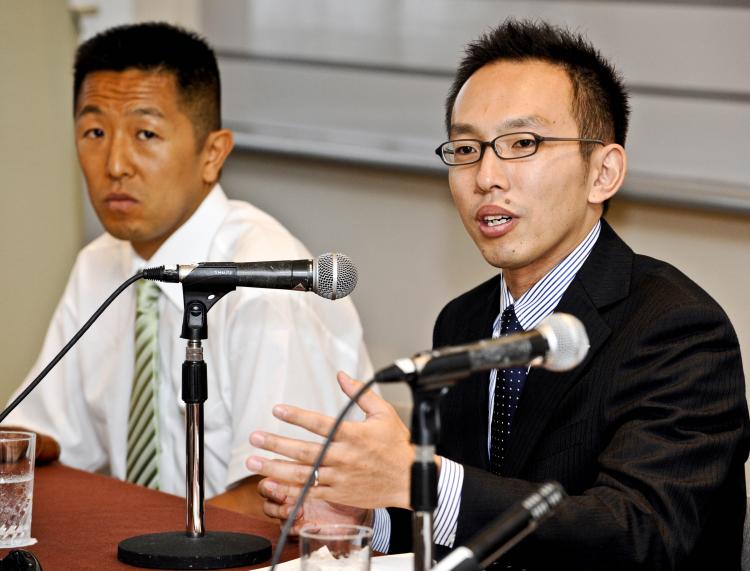Two Greenpeace activists, nicknamed the ‘Tokyo Two,’ were found guilty by a Japanese district court on Monday of stealing a box of whale meat, and have been given a one year suspended prison sentence.
The two defendants, Junichi Sato and Toru Suzuki, had been charged with trespassing and theft of a box containing 50 pounds (23 kilograms) of whale meat from a shipping depot, two years ago.
The pair admitted they stole the box, but said they did it to expose the corruption of the secretive whaling industry in Japan. They alleged the meat was smuggled for the purpose of sale or personal consumption.
“We set out to reveal the truth about the government’s whaling [program], but instead have been punished, while those behind the misuse of public money walk free,” Suzuki said according to AFP.
A year after the worldwide ban on commercial whaling was imposed in 1986, Japan established the Institute of Cetacean Research, to allow the slaughter of whales for alleged scientific research purposes.
One month after the activists informed the police about their discovery of the whale meat, they were arrested and put into jail for about 26 days where they were interrogated while strapped to chairs.
“It felt like I was in China or Vietnam, not Japan,” said Suzuki according to AFP.
The case has dragged international attention to the whaling program in Tokyo.
A similar case took place in June, when Sea Shepherd anti-whaling activist Captain Peter Bethune was sentenced to a two-year suspended jail sentence on charges that included trespassing on a Japanese whaling ship.
The two defendants, Junichi Sato and Toru Suzuki, had been charged with trespassing and theft of a box containing 50 pounds (23 kilograms) of whale meat from a shipping depot, two years ago.
The pair admitted they stole the box, but said they did it to expose the corruption of the secretive whaling industry in Japan. They alleged the meat was smuggled for the purpose of sale or personal consumption.
“We set out to reveal the truth about the government’s whaling [program], but instead have been punished, while those behind the misuse of public money walk free,” Suzuki said according to AFP.
A year after the worldwide ban on commercial whaling was imposed in 1986, Japan established the Institute of Cetacean Research, to allow the slaughter of whales for alleged scientific research purposes.
One month after the activists informed the police about their discovery of the whale meat, they were arrested and put into jail for about 26 days where they were interrogated while strapped to chairs.
“It felt like I was in China or Vietnam, not Japan,” said Suzuki according to AFP.
The case has dragged international attention to the whaling program in Tokyo.
A similar case took place in June, when Sea Shepherd anti-whaling activist Captain Peter Bethune was sentenced to a two-year suspended jail sentence on charges that included trespassing on a Japanese whaling ship.



